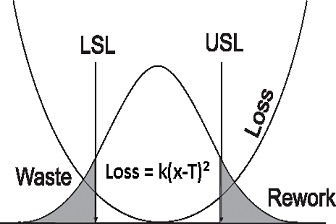
| Being the only place in the world possessing all 3 raw materials for steel production in a 10-mile radius, Birmingham was born from the iron and steel industry as showcased by a statue of Vulcan, and Tannehill Ironworks Park. Birmingham students will learn how to cost-optimally design tolerances. | |||||||||||||||||||||||||
|---|---|---|---|---|---|---|---|---|---|---|---|---|---|---|---|---|---|---|---|---|---|---|---|---|---|
| Price | $349 / student assuming min. enrollment is met | ||||||||||||||||||||||||
| Duration | 1 day | ||||||||||||||||||||||||
| Format | In-person, instructor-led slideshow with exercises ending in a test of comprehension. | ||||||||||||||||||||||||
| Materials | Each student will receive a 3-ring binder containing color print-outs of the slideshow. Please note, this material and the presentation itself are copyrighted. A Certificate of Completion is released for each student who passes their test and for which payment for the training clears. | ||||||||||||||||||||||||
| Start Day Options |
|
||||||||||||||||||||||||
| City | Birmingham, AL | ||||||||||||||||||||||||
Recommended Dates
The following dates are recommended because they have a low minimum student requirement,
or students are enrolled but not yet enough to hold a class. Please choose a date for your Tolerance Design Training class. Dates are formatted as year-month-day:
All Dates
If none of the recommended dates work with your schedule, that's ok. Please choose a date from the list below:
About Tolerance Design Training
Who is Tolerance Design Training for?
Tolerance Design is most often used by Product Design Engineers and their management. In our course, Birmingham students learn:
Tolerance Design Training Course Overview:
In an interactive and fun setting. learn how to calculate the intersection point between internal manufacturing cost and external warranty cost. How many billions of dollars do you suppose have been lost due to tolerances being either too tight or too loose? If they're too tight, manufacturing cost is unnecessarily high. And often the relationship between Product Engineering and Manufacturing is strained, damaged, and contentious. If tolerances are too loose, warranty cost will be high and relations with external customers will be damaged exposing your organization to market share being stolen by competitors. Who wants to live this way? Certainly, most of the companies we visit do no tolerance design at all relying on arbitrary block tolerances. It is absolutely certain that block tolerances are costing you. Probably a 6-7 digit annual cost depending on the size of your company.
The primary focus of our 1-day Introduction to Tolerance Design is conveying how to improve profit by setting tolerances at the optimal balance between external (warranty) cost and internal manufacturing cost. Sometimes this is attained by tightening tolerances. Sometimes it is attained by loosening them. Through presentation, examples, and hands-on exercises, students will learn through doing the following in a highly interactive and fun setting:
| Prioritize. Tolerances based on their ability to impact product functionality / performance through application of Design of Experiments. This introductory course is limited to 2-factor designs; 2 levels of tolerance variation one high and one low. We do offer an Advanced Tolerance Design class to address 3-factor designs. | ||
| Analyze. Cost implications associated with changing tolerances through constructing quality loss functions, calculating average quality loss, and conducting cost benefit analysis. | ||
| Choose. Which tolerances to tighten or loosen and by how much. |
Prerequisites. Basic:
| Knowledge of Product Design / Engineering | ||
| Math: Algebra, Summations | ||
| Excel |
Details.
| All students receive a binder of slide print-outs. | ||
| Students will also be asked to evaluate the class. | ||
| Comprehension will be measured with a quiz. Passing grade is 80%. Students scoring less will receive a call from their instructor to review weak points. | ||
| Once understanding is confirmed, certificate proofs will be emailed for error-checking. | ||
| Certificates will then be printed and delivered by normal mail. Certificates are individually serialized with no expiration date although annual refresher training is recommended. |
Schedule. The day is usually 8am-3pm including time for breaks and followed by a quiz. Lunch is between 30-60 minutes depending on client preference.






